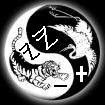There are several kinds of lies that are told (now you may not want to read this, but not all lies are bad or wrong), there are lies of greed, lies of protection, lies to hide things, lies of omission, lies of self deception, destructive lies, constructive lies and rumors. This list is not meant to be all inclusive. You might be able to think of a category of lies I have not listed.
Lies of greed could be classified as lies used to achieve personal gain. These are the lies a con man would use. These lies are not good. They are designed to steal from the victim of the lie. Lies of greed are always wrong.
An example of a lie of greed is the one a thief would tell. A man would told this couple he could fix the roof of their house with new material. They hired him. Instead of using new material like he said, he used slightly used material that cost him less than new stuff would have cost. The slightly used material would not last as long as the brand new material would have lasted. This lie robbed the hearer of years of protection and assurance a new roof would have granted them. This lie gave the teller more money, but it gave the hearer less substance than they thought they thought they were going to receive.
Lies of protection are designed to protect the liar or the object of the lie. An example of a lie of protection would be the lie Rahab used in Jericho to protect the two Israelite spies mentioned in the Bible, in Joshua 2. Another lie of protection was spoken by the Hebrew Midwives in Egypt, who lied to protect the Hebrew slaves around the time Moses was born. Another example of lies of protection are ones told by children to avoid being punished. The teller of lies of protection, mentioned in the Bible, were never punished, on the other hand they were rewarded for lying, by the Creator or the people for whom they lied.
Lies told to hide things are told to those who have no right or need to know the things lied about, such as military secrets, or secret societies or one that we would not think are lies, but they are there, and these are the lies told in the Bible about the nature of the Creator, which is the nature of the literary work.
Lies of omission are things that are left out of a story we tell someone. These are things we do not want to tell the hearer for whatever reason. Things we do not want them to know so we omit them from the story. Things we want to keep hidden. The Bible is full of lies of omission; lies of omission about the Creator, about Yahoshua, about the devil and about the true nature of the adversary. These are not bad lies. These are truths that are not necessary to be told, but to be discovered by a believer truly searching for the truth. These are lies that are told to test the true nature of the loyalty of the believer.
An example of bad lies of omission is lies told by salesman who are trying to upsell a product. A business has several ways of making an object for their customer, but they only tell their customers the two most expensive ways, unless the customer is aware of the more inexpensive manner. If the customer is unaware of the lower priced ways, they do not inform them. That is a lie of omission.
Lies of self deception are lies told that deceive the teller. They can be as sophomoric as lies of how skinny you are not or as how intelligent you are not. Lies of deception are lies someone tells them self to make them feel better about themselves. Sometimes they are told when someone places them self above someone else so that they can judge their actions. When someone sits in judgment of someone’s actions, that person must be in some position of authority over that someone, such as the Creator, a parent, a boss, a judge or a jury. Otherwise every one is an equal and has no right to judge another. There is no one who is so perfect as to be able to place themselves above another individual to judge their actions. So when someone points out someone else’s error and judges them as being wrong. They are telling themselves the lie that they are better then the person they are judging. These lies can destroy relationship and can even destroy another person’s self esteem.
The epitome of self deception is in scientists who think they can improve what the Creator has made without incurring any adverse consequences. They are deluding themselves; by thinking they are smarter than the Creator.
Destructive lies are lies told to destroy some one’s life and character. These are the lies told about somebody we do not like. They are rumors. These are the lies involved in breaking the ninth commandment. There is never a good reason to tell this kind of lie.
Lies have a natural consequence. Lies of every nature divide the teller from the hearer. When you trust someone enough not to tell them any lies, you draw them closer to yourself. On the other hand, if you have to tell them a lie to keep them close, you build a wall around your life or certain part of your life that separates you from them. The consequence of lies is separation.
Saturday, November 14, 2009
Subscribe to:
Post Comments (Atom)


No comments:
Post a Comment